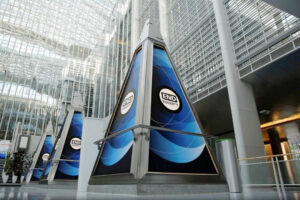THE World Bank (WB) has expressed its intention to support the digitalization of Philippine government services en route to restructuring the bureaucracy, the Department of Finance (DoF) said.
“I am very pleased to hear of the World Bank’s willingness to extend support for further digitalizing our revenue agencies and modernizing civil service in line with the President’s goal of rightsizing the bureaucracy,” Finance Secretary Benjamin E. Diokno said in a tweet following a meeting with WB Group Country Director Ndiame Diop earlier in the week.
As of March, the WB was the Philippines’ third-largest source of official development assistance, with loans and grants representing 23.38% of the total.
“The bank has supported 68 program and project loans of the government since 2021 or over the last three administrations amounting to a total of $14.9 billion,” the DoF said in a statement on Thursday.
On Monday, Mr. Diokno and Mr. Diop discussed the alignment of the bank’s programs with the Philippines’ socioeconomic priorities.
Last month, the administration presented its eight-point socioeconomic agenda, which includes improving tax administration through digitalizing the collection agencies, broadening of financial inclusion, and rightsizing the bureaucracy.
“The World Bank is currently supporting the digitalization of the Bureau of Customs (BoC) through a $88.28 million financing for the Philippine Customs Modernization Program. The project focuses on transitioning from a largely manual and paper-based organization to a modernized BoC, achieving global standards and full modernization by 2024,” the DoF said.
The BoC has started ramping up the digitalization of its import and export processes, which were fast-tracked due to the pandemic.
At the meeting, Mr. Diokno also underscored the administration’s intent to modernize the civil service.
In his first State of the Nation Address, Mr. Marcos cited the National Government Rightsizing Program as a legislative priority.
The WB is currently supporting 15 ongoing programs and projects worth $4.96 billion, in areas like transport, rural development, disaster risk reduction and management, social protection, customs modernization, and COVID-19 response.
“Loans in the pipeline under the current administration include various programs and projects on health and nutrition, education, renewable energy, fisheries, transport, tourism, agriculture, and further reforms in the finance sector,” the DoF said.
“The DoF is also looking into tapping available support from the bank for natural disasters, including the recent strong earthquake that affected Northwestern Luzon,” it added. — Diego Gabriel C. Robles
